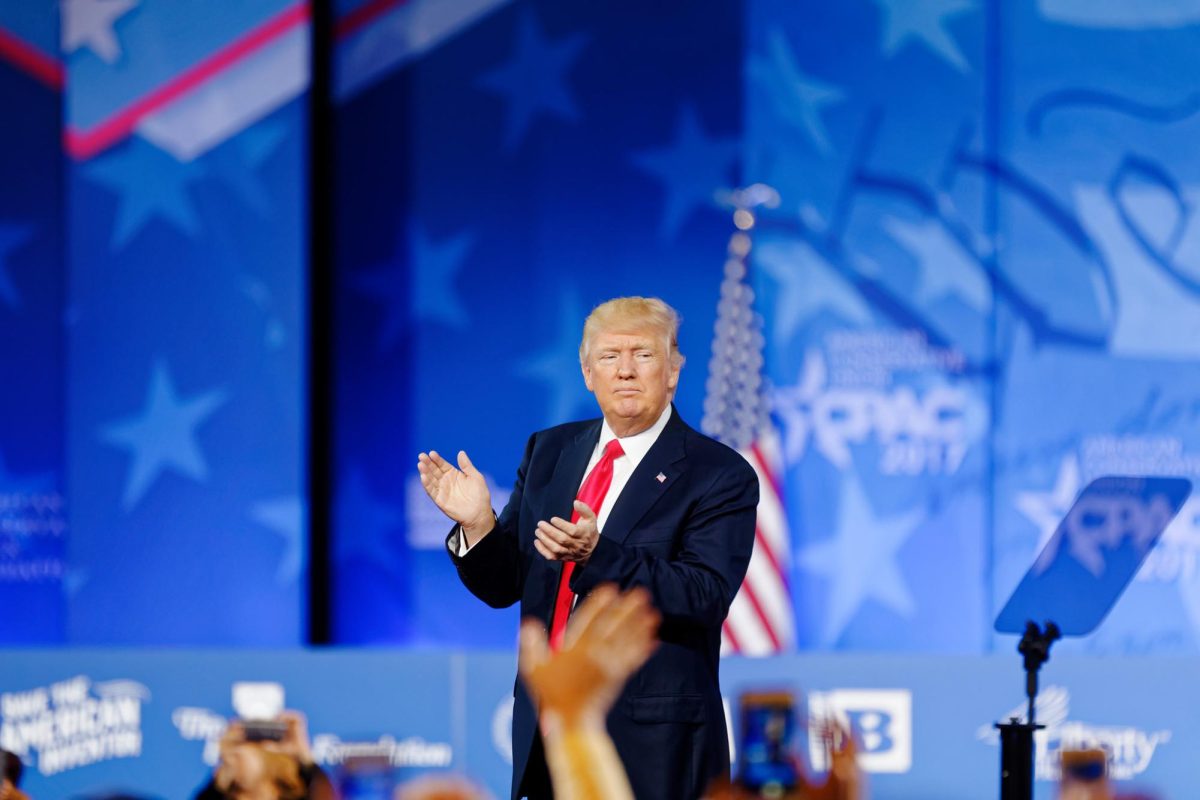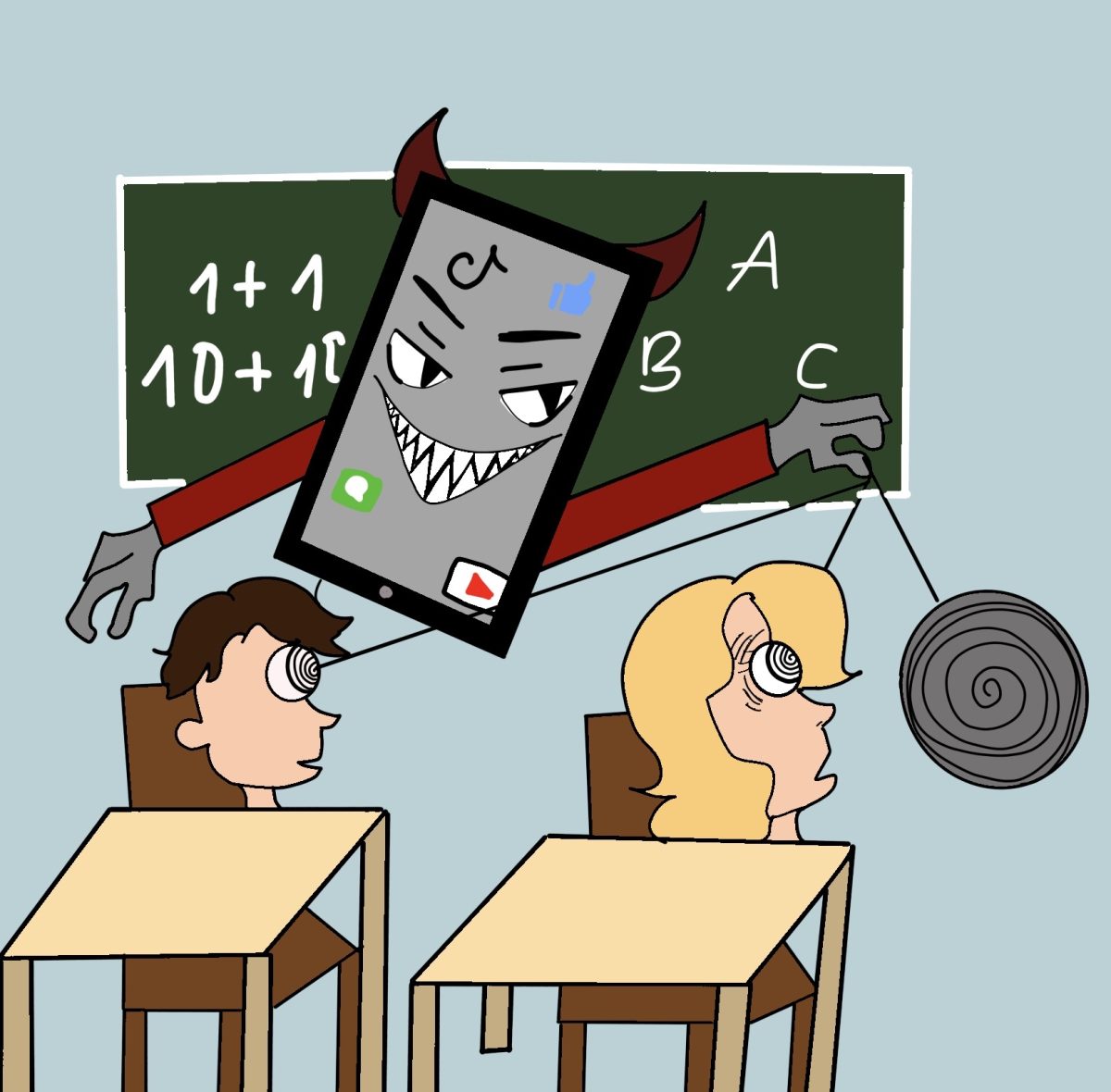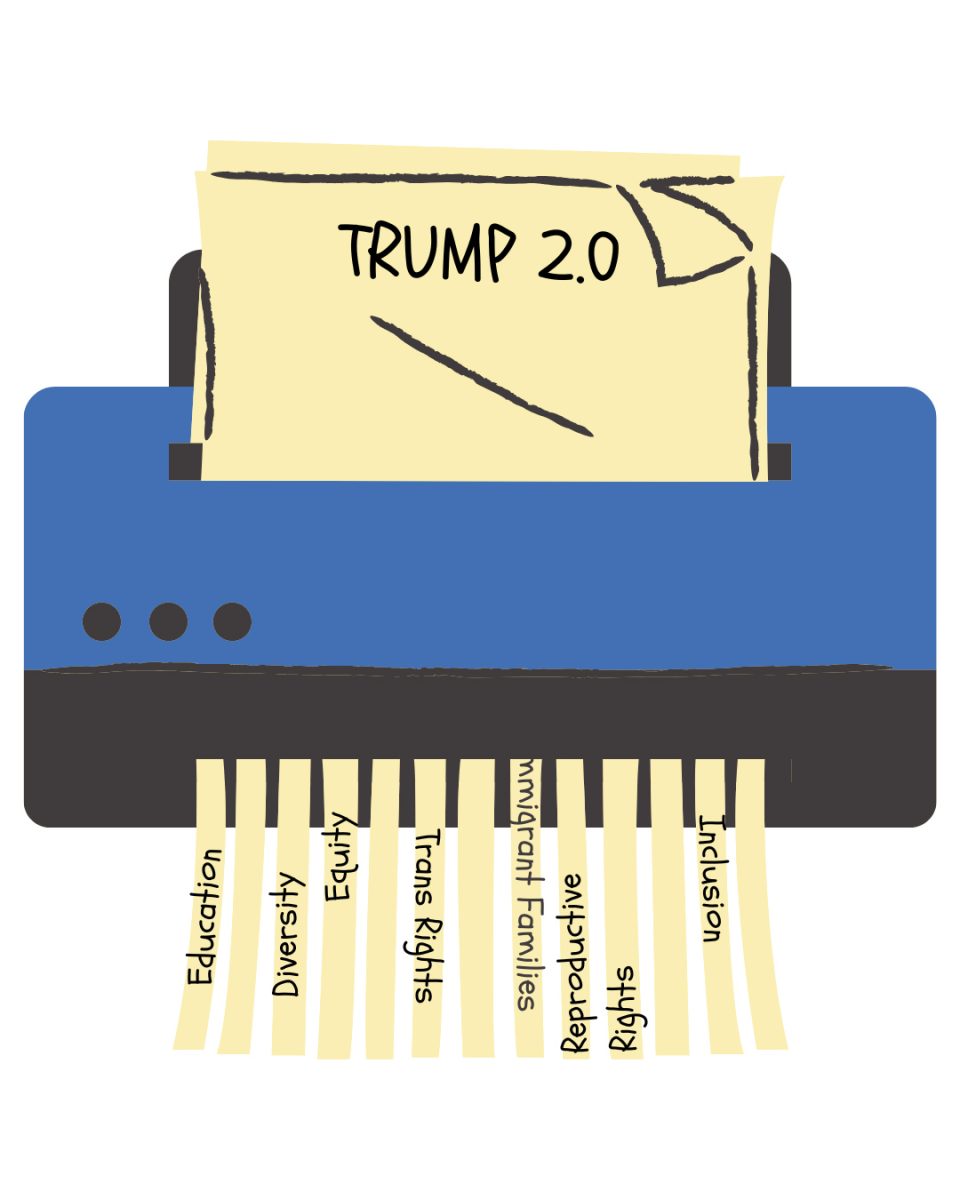I sit in my science class and breeze through my work. With some time left in the period, I turn to my neighbor, a kid I just met, and strike up a conversation. While this phenomenon may seem typical, it is something new to this school year. A year prior, both of us would’ve likely pulled out our phones, addicted to the dopamine release, unable to look away from the blue light for the rest of class.
On June 20, the Texas government passed House Bill 1481, a law that makes the use of personal devices at public schools for grades K-12 illegal. Thus, at the start of the 2025-2026 school year, students across Texas were forced to distance themselves from their cell phones, tablets, wireless headphones, personal computers, smartwatches and more. Additionally, each school district was required to adopt a cell phone policy with consequences.
At McCallum specifically, students must have personal devices stored away and powered off between 8:55 a.m. and 4:35 p.m. Breaking these rules will result in confiscation. After a student’s first offense, parents/guardians are notified, the breach in rules is recorded and the student may not pick up their device until the end of the day. After a second offense, the student suffers the same consequences except only their parent/guardian may retrieve their device and campus personnel follows up to offer the student support. A third offense results in the device staying at school overnight, until a parent/guardian can retrieve it. Fourth and subsequent offenses conclude with the device being confiscated for 48 hours.
As a senior, I am honestly tired of the school implementing new random rules each year (even if the cell phone policy is required by law). That said, I do think House Bill 1481 is not completely horrible.
Based on what I’ve heard from my friends and classmates, the majority student consensus on the new policy seems to lean towards negative. I can understand this, as there are definitely drawbacks to the new law.
For example, it is incredibly difficult to contact friends during the school day. I can attest to this, as it has become a million times harder to make lunch plans. I am so used to texting my group chat 30 minutes before the lunch bell releases me from class, asking where we are meeting for the day. Now, without the ability to text, my friend group has adjusted by meeting in the same spot every day. While it’s not the end of the world, this still feels like a hassle.
Furthermore, whenever I want to have lunch with a friend I don’t usually eat with, it takes much more preplanning. Rather than texting the friend the day of, like I used to, I have to reach out the day before, and even preplan a meeting spot.
Another big drawback is music. I am one of those people who need music while they work in order to focus. At first, this wasn’t an issue, as I was able to listen to Spotify on my Chromebook with wired headphones. However, yesterday during sixth period, I made a heart-breaking discovery. I was going to work on some homework, and went to Google to search for Spotify–just as I had been doing for the past few weeks. However, when I clicked the link, instead of seeing the home page, I was greeted by the infamous gray screen and red lettering. Austin ISD blocked Spotify! At this moment, I wanted to scream, but of course, I just sat quietly and continued my work (to the best of my abilities) in silence.
Although I like to complain, there are some workarounds to this dilemma. For one, you can listen to music on YouTube. This option works if you want to listen to randomized classical music or a specific song, but you’re out of luck if you want to listen to a certain playlist. Another thing you can do is buy a vintage MP3 player. Since it can’t receive outside communication, the device is technically legal. But who really wants to drop a buck on an outdated, crappy piece of metal?
Drawbacks aside, I do think the new cell phone policy has its benefits. In my eyes, the main advantage is increased social interaction. Last year, I remember everyone pulling out their cellphones the second they finished their work, or sometimes even before. This caused a social barrier, because no one wants to try and have a conversation with someone on their phone. I even found myself doing the same thing. With everyone on their devices, it felt awkward being the one person who wasn’t. I remember looking back at elementary school, when we would all just talk to each other, and wishing high school could be the same.
It seems my wish has been granted.
This year, I feel like I can talk with my peers much more. It no longer feels awkward talking with the kid I don’t know at my table at the end of class. And for this reason, I support the new cell phone policy overall.
While increased social engagement is what I feel benefits me the most from House Bill 1481, there are even more positive aspects of the new law. One of them being that it increases students’ focus in the classroom. According to a study conducted by Richard Murphy, an assistant economics professor at the University of Texas at Austin, and Louis-Philippe Beland, an assistant economics professor at Louisiana State University, banning cell phones will increase students’ academic performance.
Murphy and Beland surveyed 91 English schools in Birmingham, London, Leicester and Manchester. Through analyzing student exam records between 2001 and 2013, and comparing them with the cell phone policy at the time, researchers found the students in classrooms that had banned phones had test scores that were 6.41 percentage points of a standard deviation greater than classrooms without cell phone bans. This number only increased with low-achieving students, with test scores increasing by 14.23 percentage points of a standard deviation, making this demographic 4 percentage points more likely to pass their test.
Since banning phones helped students in England perform better academically, I believe it will have the same effect on students at McCallum.
In fact, I think House Bill 1481 will benefit students all over Texas. It will aid them in peer socialization and classroom focus. That being said, I do think there are a couple of things that the state of Texas and Austin ISD should do to make this ban a positive experience for students.
For starters, I think Austin ISD should unblock Spotify. If students don’t have the right to listen to music on their phones, they should at least be able to listen to it on their computers.
Secondly, I think cell phones should be allowed during lunch in high schools. In middle schools and elementary schools, students typically go with their classes to eat in the cafeteria, so even without phones it is not difficult to meet up with friends. However, at McCallum, students eat all over the building and often even leave campus. Without cell phones, it is much harder to find your friends and organize plans. Lunch periods are free periods, so it doesn’t make sense that students shouldn’t have access to their cell phones, especially considering it doesn’t affect classroom productivity.
House Bill 1481 is a step in the right direction, but it needs a few adjustments. If the goal is to support students, then their needs and opinions need to be taken into consideration. If the Texas government alters details such as allowing personal devices during rest periods, and Austin ISD is less strict with what they block, then the cell phone ban will be more widely accepted by students. Furthermore, implementing these changes will aid the law in fulfilling its main purpose: increasing students’ focus in class, without taking away pieces of what makes school enjoyable.








